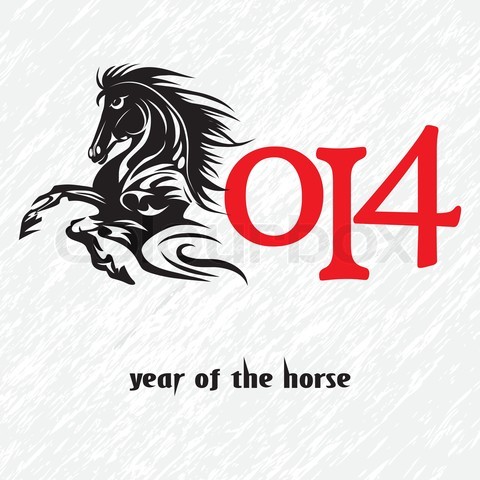As the clock rolls over to midnight of January 31 and the new lunar year begins, over a billion people worldwide celebrated with fireworks, food, and family. Spanning from various countries across East and Southeast Asia to Chinatowns in Western metropolitan cities like San Francisco and London, the fifteen-day Chinese New Year celebrations hold a lasting impact for those of Asian heritage.
According to legends, a sea beast with the head of a lion called Nian (“Year”) would terrorize villagers by eating crops and children on the first new moon of the year. However, villagers began setting off fireworks and performing dragon dances to ward off Nian. While the belief in Nian has largely faded away over time, the practice of making lots of noise to scare away evil spirits and bad luck has remained over the centuries.
Every year, the Chinese calendar also honors one of twelve different animals, usually referred to as the Chinese zodiac. Many stories tell about how the Jade Emperor summoned all the animals to a meeting, but only twelve arrived. The Jade Emperor rewarded them by giving each animal a recurring year on the calendar, beginning with the Rat and ending with the Boar. People also believed that you would receive some of the traits of the animal whose year you were born under, so people born in the Year of the Horse would be cheerful, thrifty, perceptive, and talkative. From what I’ve heard, this year is supposed to be a pretty good year. They say it’s a good time to take a trip, and that there’ll be many changes and lots of excitement, which is always good!
Whether it’s a result of a superstitious Filipino grandmother or just a general valuing of my mom’s Asian roots, Chinese-influenced traditions—both common and obscure—have a special place in my mixed-culture home, finding their way into my family on both January 1 and Chinese New Year. Between the more common practices of slurping long noodles for long life on the first day of the year and the more obscure practices of wearing polka-dot clothing (or anything else with circular patterns to symbolize pearls), I like to think we struck a balance between carrying out the compulsory Chinese-influenced traditions of the past and searching for and creating interesting traditions to last for years to come.
I always can tell Chinese New Year is rolling around soon when my mom begins going into super-cleaning-frenzy mode. Usually one of the first big cleans of the calendar year coincides with the week before the second new year, since the house is supposed to be immaculate when midnight rolls around. Then red- and gold-colored paper scrolls with Chinese words none of us can read get hung up on our doors.
My grandma also has a lot of interesting money-related superstitions, but the importance of following them intensifies come New Year. The first important thing to remember is that all debts must be paid off. The belief is that your financial state is at the stroke of midnight will carry on all year. (It’s only around this time of the year that I actually pay back all the money I owe my friends.) And then as long as I can remember, coins have to be spread throughout your house the day before the new year begins, especially in front of and behind all the doors leading to the outside so that money could enter the home.
Then on New Year’s Day, you’re not allowed to sweep or clean anything because you might sweep away any of the luck or fortune that just came in. You also can’t spend a single penny. You also can’t cut your hair (or really anything on you) since that could supposedly shorten your life, so it’s normal to get a haircut before the new year begins.
Asian cultures in general tend to place a heavy emphasis on food. It’s fitting that one of the most common traditions include eating long noodles on the first day of the new year. But it only works if you don’t bite them! It doesn’t matter if it’s a bowl of home-cooked pansit (Filipino noodles), microwavable ramen, or spaghetti—any will do.
Fish is also a lucky food to eat, because the Chinese word for “fish” is like the Chinese word for “plenty.” Customarily the fish is supposed to be served whole, but because of my own squeamishness around fish heads, I just opt for sushi. Tangerines placed near the TV also symbolized liveliness and joy, their vibrant red-orange hue filling the house with warmth before we eat them. When it comes to meats, Chinese culture doesn’t have a problem with eating chicken on Chinese New Year, but Filipino culture says to avoid it since chicken scrounge for food, and no one wants to have to scrounge for food in the new year.
My half-Chinese friends would always receive red envelopes filled with money. I’d always love going to their house for a small Chinese New Year party since their Chinese mom would also give me a red envelope when I’d greet her with “gong xi fa cai,” which was a way to say happy Chinese New Year and wish someone a prosperous year ahead.
There are also some more obscure traditions that I have a feeling only my family actually practices. At the stroke of midnight, children—and short people like me—are supposed to jump twelve times so they grow that year. It hasn’t worked so far but it’s worth a shot. And then there’s the belief that you must be home at midnight, partly in order to perform all the traditions and partly because you don’t want to be in the way of any fireworks. My mom’s insistence on being home at least five minutes before midnight has led to some very awkward getaways at New Year parties, but luckily it’s more acceptable during Chinese New Year.
Overall, I have to say my favorite part of Chinese New Year, even more than an excuse to eat delicious Asian food, is the connection to my very small Chinese heritage and my larger, half-Filipino heritage. Most importantly, it’s a holiday for the family to come together, even if the rest of it may be an ocean away. Whether you’re completely Asian, half-Asian, or not Asian at all, whether you’re a Tiger, an Ox, a Dragon, or a Horse, Chinese New Year is a great time to experience a small part of a large culture celebrated by many, many people around the world. Gong xi fa cai! Have a great Year of the Horse!






